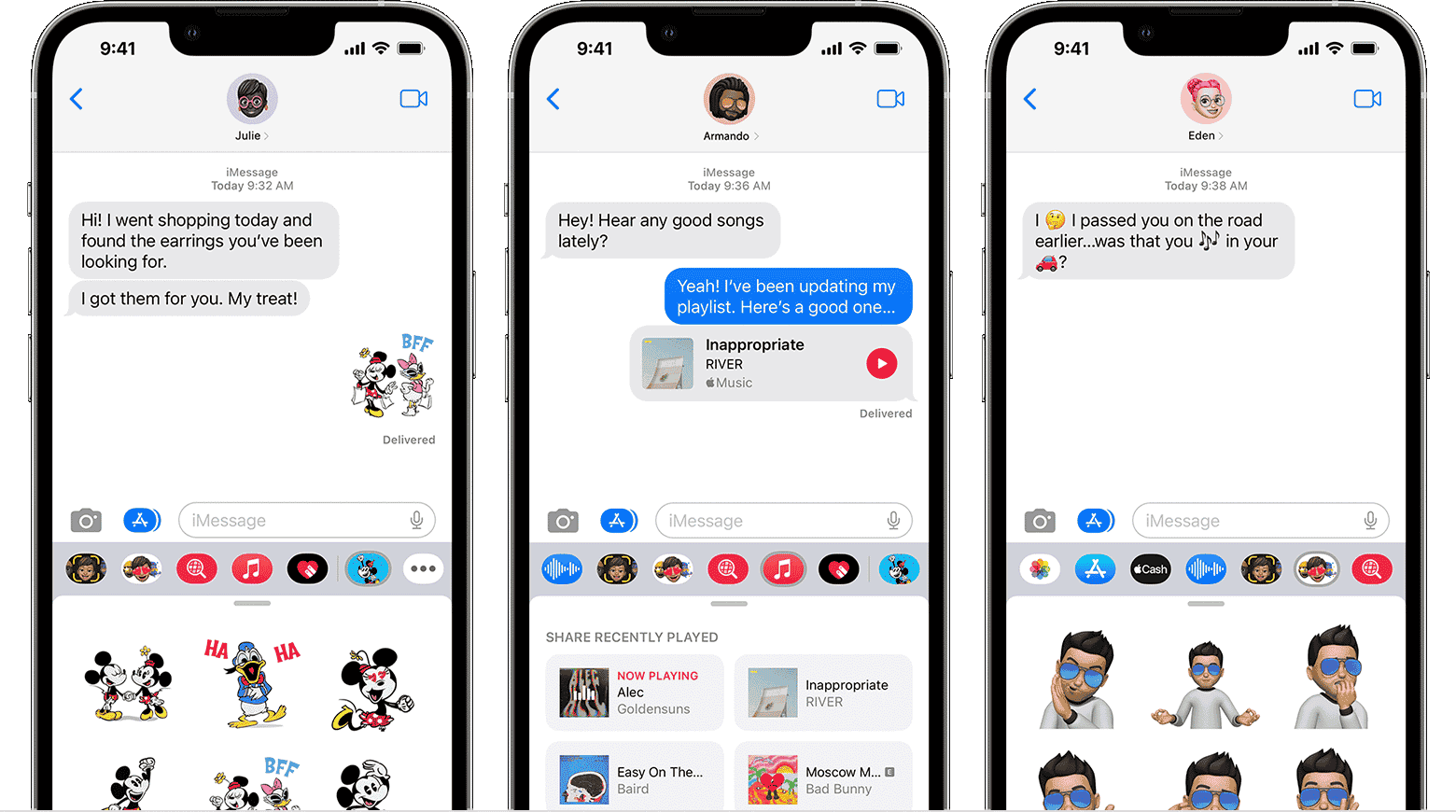According to a recent report, major European telecom companies and Google are urging the European Commission to categorize iMessage as a “core” service under the Digital Markets Act (DMA). They highlight the crucial role of iMessage as a communication channel between businesses and customers.
Google and Telecom Giants Push for iMessage Compatibility

Google has been actively promoting the adoption of RCS, a cross-platform messaging standard, by Apple. Through its #GetTheMessage campaign, Google argues that Apple’s exclusivity with iMessage is a strategic move. And emphasizes the importance of interoperability with other messaging services.
While Apple’s Messages app can send cross-platform messages via SMS, certain enhanced features of iMessage, such as encryption and higher quality media sharing, are limited to Apple’s ecosystem.
Also, the joint letter, signed by Google and CEOs of major telecom companies including Vodafone, Deutsche Telekom, Telefónica, and Orange, asserts that iMessage should be considered a core platform service. They argue that Apple, being a company with substantial revenue and a significant user base. It plays a vital role as a gateway between businesses and consumers, particularly in the business sector. This justifies Apple’s designation as a gatekeeper for the service under the DMA.
So, in response, Apple maintains that iMessage is primarily for personal consumer communication and falls outside the scope of the DMA. The company states that consumers have access to various messaging apps, and iMessage’s focus remains on personal communication.
Implications of the DMA
The DMA is expected to have a significant impact on the digital landscape. It is likely to:
- Increase competition and innovation: By opening up gatekeepers’ ecosystems, the DMA will create opportunities for new entrants and foster innovation.
- Protect user rights: The DMA’s emphasis on data protection, privacy, and fair trading will empower users and give them more control over their data and choices.
- Shape the global regulatory landscape: The DMA is likely to inspire other jurisdictions to adopt similar regulations, setting a global standard for fair competition in the digital sector.
Challenges and Considerations
Despite its potential benefits, the DMA faces some challenges and considerations:
- Implementation: Implementing the DMA’s complex rules and obligations will require careful consideration and cooperation between regulators, gatekeepers, and other stakeholders.
- Enforcement: Enforcing the DMA effectively will require significant resources and expertise from the EC.
- International coordination: Ensuring global coordination of digital regulations will be crucial to prevent fragmentation and regulatory arbitrage.
Opening iMessage for RCS Compatibility: A Comprehensive Analysis

For years, the lack of interoperability between Apple’s iMessage and the Rich Communication Services (RCS) standard has been a significant source of frustration for users. While iMessage offers a rich messaging experience with features like high-quality video and audio calls, read receipts, and typing indicators, it remains exclusive to Apple devices. This creates a communication barrier between Apple and Android users, forcing them to rely on less-advanced SMS messaging or third-party apps.
The RCS Standard and Its Advantages
RCS is an industry-wide standard for messaging that aims to modernize SMS by providing a range of advanced features, including:
- High-quality file sharing and media support
- Read receipts and typing indicators
- Group messaging enhancements
- Enhanced end-to-end encryption
The adoption of RCS has been growing steadily, with support from major carriers and device manufacturers worldwide. However, Apple’s decision to keep iMessage exclusive has hindered its widespread adoption and created a fragmented messaging landscape.
Benefits of Opening iMessage for RCS Compatibility
Opening iMessage for RCS compatibility would bring several significant benefits, including:
- Enhanced user experience: All users, regardless of their device platform, would have access to a more modern and feature-rich messaging experience.
- Reduced fragmentation: A unified messaging standard would eliminate the need for multiple messaging apps. Making it easier for users to communicate with each other.
- Increased competition: Opening iMessage would encourage further innovation and development in the messaging space, ultimately benefiting users.
Potential Challenges and Considerations
While opening iMessage for RCS compatibility would bring substantial benefits, there are some potential challenges and considerations:
- Apple’s reluctance: Apple has been hesitant to adopt RCS, potentially due to concerns about losing control over its messaging ecosystem and the potential impact on iMessage’s competitive advantage.
- Technical implementation: Integrating RCS into iMessage would require technical collaboration between Apple and other industry players.
- User adoption: Even if iMessage becomes compatible with RCS, there may be a lag in user adoption, as some users may be unaware of the benefits or may prefer to stick with familiar messaging apps.
Conclusion
Opening iMessage for RCS compatibility would represent a significant step forward in the evolution of mobile messaging. It would break down communication barriers between Apple and Android users, provide a more consistent and feature-rich messaging experience, and encourage further innovation in the messaging space. While there are some challenges to be addressed, the potential benefits of opening iMessage for RCS compatibility outweigh the risks. Apple should seriously consider adopting RCS to ensure that all users can enjoy the benefits of modern messaging.





